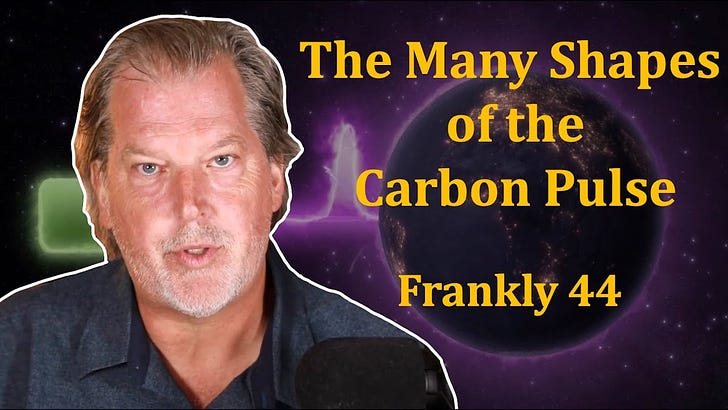This week, I am breaking down an oft used concept from my work - the Carbon Pulse. A one time massive consumption of fossil hydrocarbons at a pace millions of times faster than they were created. In this reflection, I outline the many shapes that this pulse could take, as well as some shapes it will never take due to the finite nature of these compact, energy dense fossil hydrocarbons.
Compared to previous carbon pulses that led to mass and minor extinctions, how does the modern pulse compare? What can what we know about ecology and human behavior tell us about the most likely paths into descent? Can thinking about these graphs on such grand geologic time scales help guide us away from the Precipice and towards a more Sapient Future?
In case you missed it…
While this show frequently covers the importance of energy itself, the ability to store and access energy has been just as critical in shaping societies. On last week’s episode, scholar and engineer in the field of energy, Graham Palmer, joined me to discuss the history and future of humans and energy storage.
From agriculture, to wood, to coal, to oil, each transition has marked a new way for humans to interact with the world around them. What would it mean for economic growth if we no longer have access to these storable energies? What does the necessity of storability mean for electricity - an inherently flow-based energy form? Would human societies moving back to a flow-based energy system also mean once again becoming in-sync with the Earth and her ecosystems?
If you appreciate The Great Simplification podcast…
Be sure to leave a review on your preferred podcast platform! Leaving reviews helps the podcast grow, which helps spread awareness of our systemic situation from experts in ecology, energy, policy, economics, technology, and community building so that we can better understand - and respond to - the challenges of the coming decade.
The Great Simplification podcast is produced by The Institute for the Study of Energy and Our Future (ISEOF), a 501(c)(3) organization. We want to keep all content completely free to view globally and without ads. If you’d like to support ISEOF and it’s content via donation, please use the link below.






Those pulse graphs are very helpful when thinking about the range of possibilities for what can occur. Thanks!
The world can't afford governments who want to ignore what's coming (as many do). In NZ, the coming election (30 odd days away) may bring in a RW govt who have zero interest in the future - we have to rebuild the economy and we need to grow - that's the mantra.
I'm hoping that the silent majority come out to vote!